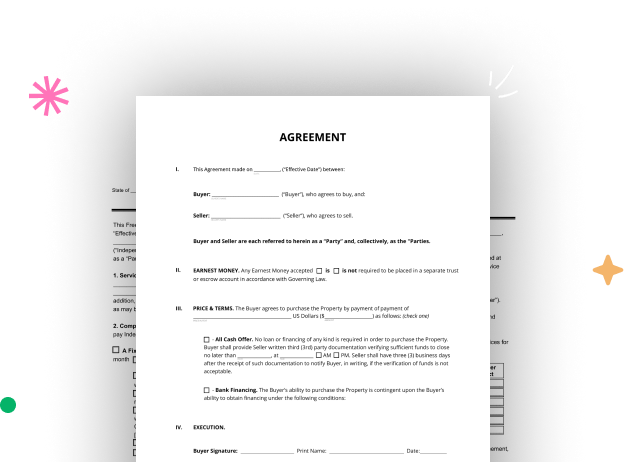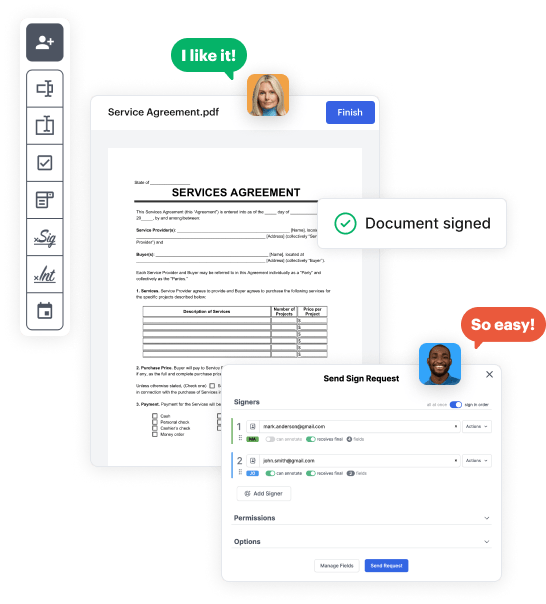

First, log in to your DocHub account. If you don't have one, you can easily sign up for free.
Once signed in, head to your dashboard. This is your primary hub for all document-focused activities.
In your dashboard, hit New Document in the upper left corner. Pick Create Blank Document to craft the Professional Property Management Form from scratch.
Add various items like text boxes, photos, signature fields, and other options to your template and designate these fields to certain users as required.
Personalize your template by including walkthroughs or any other vital tips leveraging the text feature.
Meticulously review your created Professional Property Management Form for any typos or needed adjustments. Take advantage of DocHub's editing tools to polish your template.
After finalizing, save your copy. You may choose to save it within DocHub, export it to various storage platforms, or send it via a link or email.